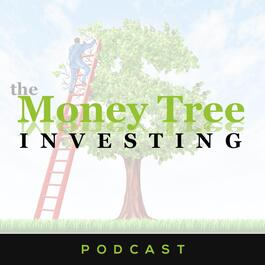
There a problem with the post election tariffs! Today we talk about all the breaking political developments following Trump's election, his rapid use of executive orders and his quick use of tariffs. We have cautious optimism about some policies, but there is still always potential risks, with inflation and interest rates. We also challenge the common belief that homeownership is always an investment. Maybe there's something else that works for you. Today we discuss... How Trump's election has led to rapid political changes, with new developments emerging daily. Media on both sides is seen as biased, and people should think critically instead of relying on propaganda. The speaker is cautiously optimistic about Trump's direction, particularly regarding the economy. Some of Trump’s policies, like lowering interest rates and tariffs, could contribute to inflation. A discussion on real estate framed a home as a personal expense rather than an investment, challenging common narratives. High property prices in some areas make renting more financially sound than buying, contrary to common beliefs. Cutting government spending, a key Trump priority, could have significant economic impacts, especially in Washington, D.C. Not investing in D.C. real estate due to potential government downsizing. High housing costs are forcing younger buyers to relocate farther from cities. Changing living patterns, similar to COVID-era shifts, are reshaping communities and work arrangements. Remote work continues to impact commercial real estate as people settle into new locations. Many Americans now struggle to afford a mortgage on a standard 9-to-5 job. Housing affordability varies widely, with some states requiring nearly a full month's wages just for mortgage payments. Burnout is highest in industries involving manual labor and customer service, with healthcare being particularly affected. Economic frustration is driving shifts in political sentiment, as many voters seek disruption to the status quo. Global markets are performing well despite U.S. concerns, with China and Europe showing strong gains. Diversification remains key for investors, as even experienced professionals struggle to consistently pick winners. The top 1% of Americans now control 30.8% of total U.S. net worth, up from 22.8% in 1989. A recent poll shows mixed opinions on tariffs, with 47% supporting them to some degree and 53% opposing or unsure. Cautious optimism is warranted, but assuming another major rally this year could be unrealistic. For more information, visit the show notes at https://moneytreepodcast.com/post-election-tariffs-685 Today's Panelists: Kirk Chisholm | Innovative Wealth Douglas Heagren | ProCollege Planners Follow on Facebook: https://www.facebook.com/moneytreepodcast Follow LinkedIn: https://www.linkedin.com/showcase/money-tree-investing-podcast Follow on Twitter/X: https://x.com/MTIPodcast
From "Money Tree Investing"


Comments
Add comment Feedback